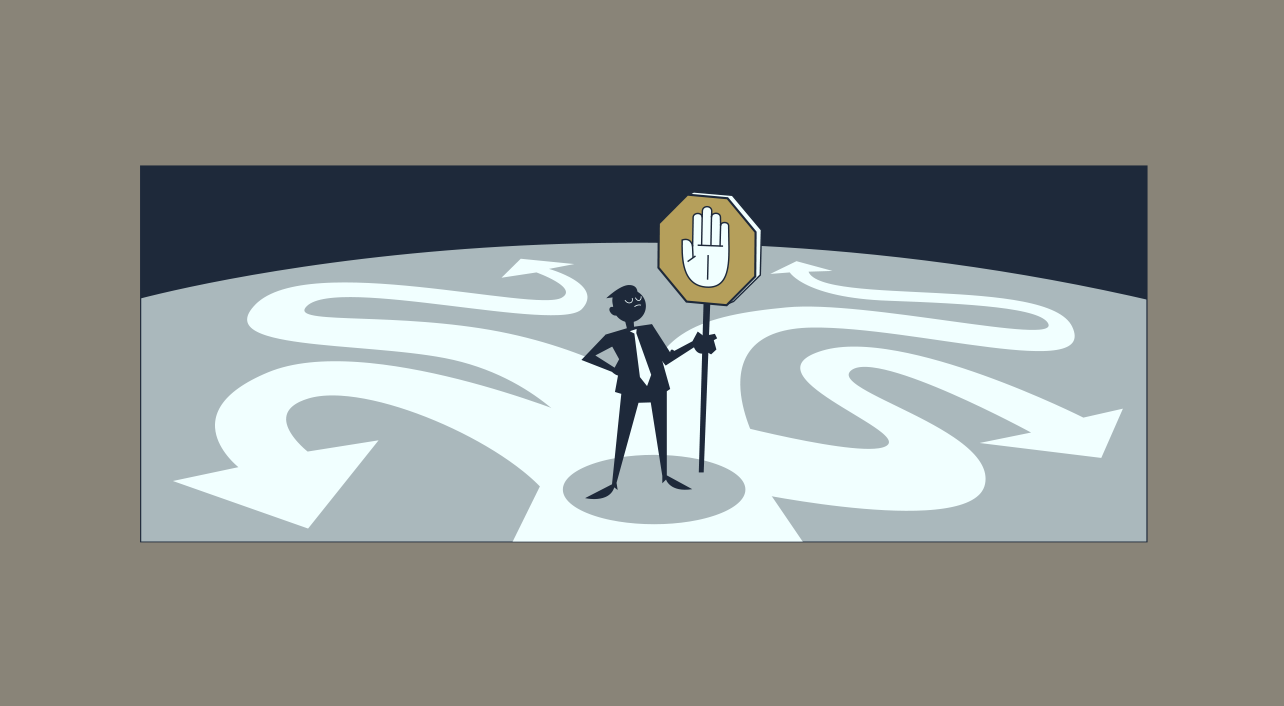- sales
- Blog post
Don’t let the fear of ‘No’ deter you from asking the right questions
Did you ever hesitate to ask — or fail to ask — a question whose answer you feared would be No? Most people have. When we do, we’re being influenced by something psychologists call “anticipatory regret” — and it can be particularly harmful for salespeople.
Imagine, for instance, that you’re talking with a prospect and you want to know whether she’s the decision-maker. “Yes,” she tells you, which is what you wanted to hear. It makes your life easier because you believe you’re speaking with the right person.
Down the line, however, you realize that while your contact may make the final decision, three or four other influencers who will have a significant impact on that decision. It would have made a big difference in how you proceeded if you’d known this from the start.
But it’s your own fault you didn’t. Somewhere in your mind, you knew that pressing her on the decision-maker question might be risky, so you didn’t do it. That’s anticipatory regret at work, and it can cause sales to stall out, or even die.
Regrets, I’ve had a few
Multiple studies have been done on anticipatory regret. In one experiment researchers had 15 people play a gambling game while monitoring their brain functions by MRI.
In the first set of rounds, participants saw only the outcomes of their decisions – “you won” or “you lost.” But in the second round, when participants lost they were told how much they would have won if they’d chosen another answer. In other words, they were made to feel bad, to experience regret.
In those moments, the MRI reports showed that their brains lit up in key areas involved in decision-making and emotional processing.
But here’s the kicker: The greater the regret, the more likely that they’d try to avoid further regret, and avoid risk by sticking with safer choices.
Unconscious avoidance
You can imagine a seller doing this while in the Discovery phase of a sale. The seller follows the sales process religiously, dem-oing the product, describing features and benefits, answering all questions. They follow the BANT qualifying protocol, questioning the prospect about Budget (“Got it”), Authority (“I’m the decision maker”), Need (“We’re hurting”) and Timing (“Urgent!”).
In the seller’s mind, they’ve checked all the boxes, thoroughly qualified the prospect, and charged forward. On each subsequent call they ask, “Are things still looking good?” and the prospect says, “yes,” exactly what the seller desperately wants to hear. Remember, the seller isn’t doing it intentionally. They’re unconsciously avoiding the pain they’d feel at hearing a “no.”
That’s anticipatory regret. You want something badly, are afraid to hear the truth, and unconsciously take measures to avoid getting it.
Everyone experiences anticipatory regret. It’s an engrained human emotion. Unfortunately, in sales it’s particularly costly. The fear of asking “risky” questions early in the sales process is the number one reason that sales stall later on, after the salesperson has invested massive amounts of time and energy.
Challenger questions
What’s the difference between salespeople who fall victim to anticipatory regret and those who don’t? It comes down to how sellers view their time. Star salespeople know that time is their most precious commodity, and they’re unwilling to waste it on prospects that haven’t been rigorously qualified.
When a prospect says, “Yes, I’m the decision maker,” star salespeople asks challenger questions, such as:
- “Who else might influence the decision?”
- “Is there anyone you need to consult before making a commitment?”
- “Who actually signs the check?”
And the answers to those questions should trigger as many drill-down questions as it takes to gain 100% certainty that the prospect is, or isn’t, the real decision maker. And you can follow this same process with other issues, including but not limited to budget, need and timing.
Star salespeople know there’s nothing riskier in sales than asking safe questions. If ultimately the sale is going to stall and die, they want to “get to no” as quickly as possible.
This blog entry is adapted from the BTS Total Access module “Why Salespeople — Not Prospects — Are Responsible for Stalls.” If you’re a Total Access customer, you can watch the video here. If you’re not, but would like to see this video (or any of our other programs), request a demo and we’ll get you access.
The blog post and BTS Total Access video module are based on the following academic paper: Coricelli, G., et al. (2005). Regret and its avoidance: a neuroimaging study of choice behavior. Nature Neuroscience, 8(9) 1255-1262.


